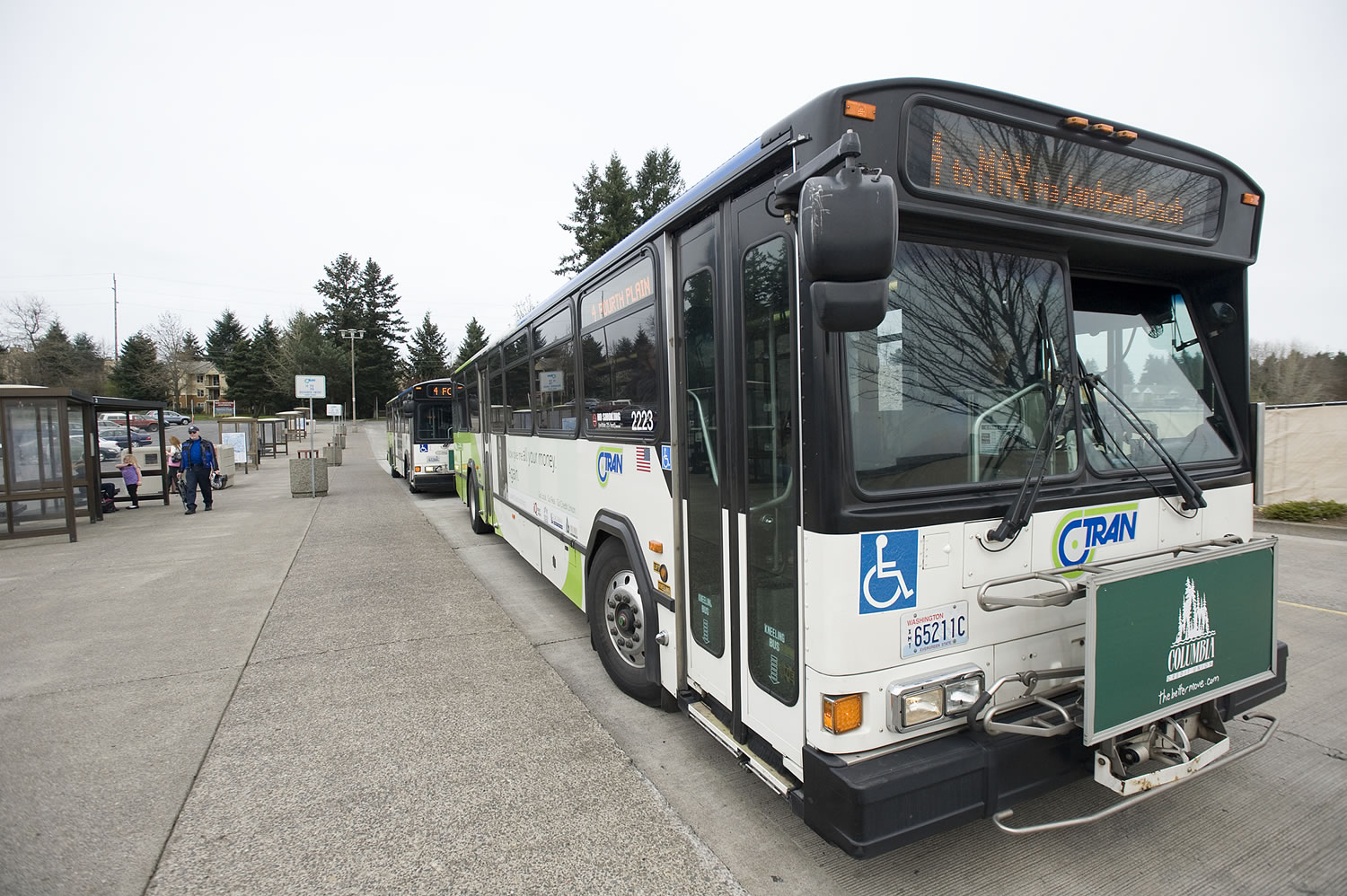Cash-paying C-Tran riders will need a little extra change in their pockets starting Saturday, Sept. 1. Fares are going up for the fifth straight year.
The move follows the agency’s recent strategy of using consistent but gradual fare increases to soften the sudden impact to riders. C-Tran also increased fares in May 2008, March 2009, September 2010 and September 2011. So far, that plan appears to be working, said C-Tran public affairs director Scott Patterson.
“With these annual, very small inflationary increases, we’ve not been seeing much, if any, drop-off in ridership,” he said.
The latest round of fare hikes was approved by the C-Tran Board of Directors in May. The agency is raising most of its single-ride fares by a nickel. Among the new rates:
• Adult C-Zone: $1.65.
• Adult All-Zone: $2.50.
• C-Van C-Zone: $1.65.
• C-Van All-Zone: $2.50.
• Honored All-Zone: $1.25.
• Youth All-Zone: $1.25.
• Express: $3.50 (15-cent increase).
A C-Zone day pass covering Clark County routes will now cost $4, up from $3.85. An Express day pass to Portland will reach $7, up from $6.70.
C-Tran’s monthly passes will also see an increase. Among the largest of those is the adult All-Zone monthly pass, which will jump from $90 to $100, according to C-Tran. That change gave some C-Tran board members pause last spring, but the group ultimately approved the new rate along with the rest.
That change is partly to keep C-Tran’s monthly pass price in line with TriMet’s, Patterson said. The Portland-area transit agency is also bumping its monthly pass to $100 starting today.
The two agencies honor some of each other’s passes, so having prices in line helps keep riders from buying up the cheaper option to skirt the other’s rates, Patterson said. And since more C-Tran commuters use TriMet than the other way around, C-Tran ends up reimbursing TriMet for the cost of carrying those riders.
Not every C-Tran fare will change. Single C-Zone fares for honored (ages 65 and older or disabled) and youth (18 and younger) will stay flat at 80 cents. Single fares for special events would also remain unchanged at $2.
The latest round of C-Tran fare hikes will generate an extra $300,000 per year, according to the agency. About 25 percent of the system’s operating cost is paid through fare revenues. That’s among the highest in Washington, Patterson said. In the Portland area, TriMet covers about 24 percent of its operating cost through fares, said spokeswoman Mary Fetsch.
C-Tran has seen a noticeable dip in ridership after some past fare increases. In 2005, C-Tran doubled the cost of its Express service to $3. Ridership on those buses then dropped sharply, Patterson said.
More recently, public comment has amounted to very little ahead of smaller fare increases, said public affairs manager Jim Quintana. At this point, he said, many people “just know it’s coming.”
Eric Florip: 360-735-4541; http://twitter.com/col_enviro; eric.florip@columbian.com.




